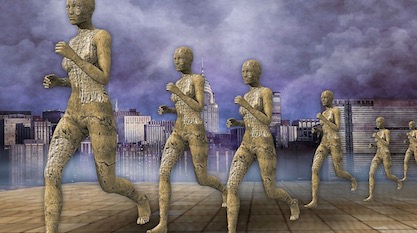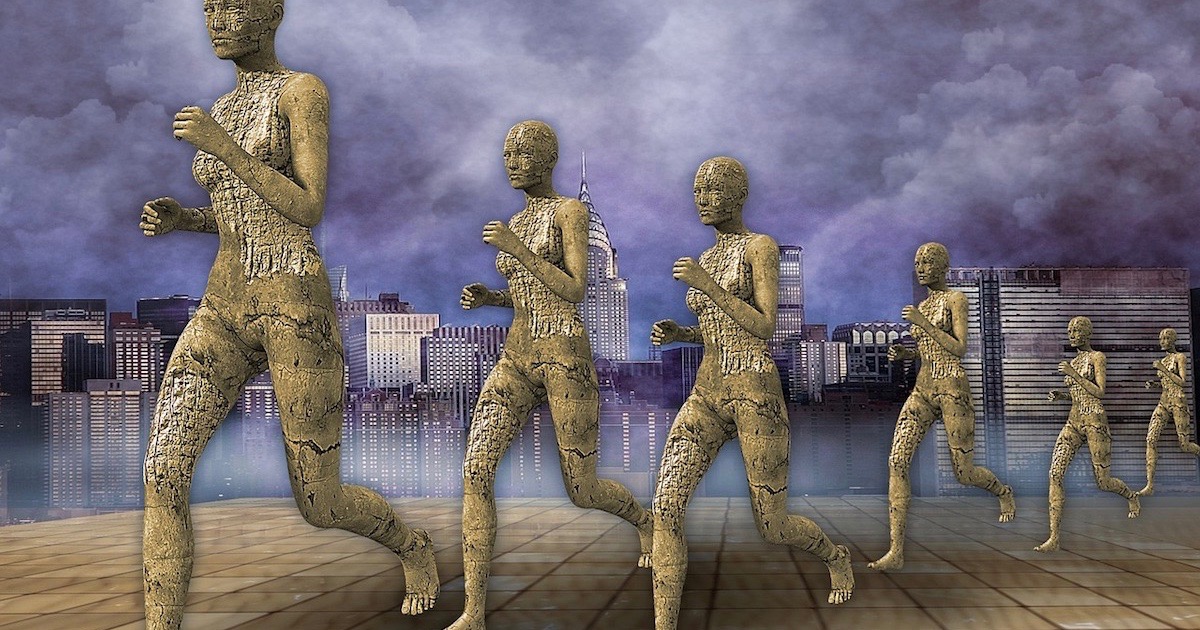 Neuroscience & Mind
Neuroscience & Mind
Richards: Using Artificial Intelligence to Sell the Welfare State


There’s an undoubted sense of crisis in the air, as Drudge today notes shocking numbers of Americans expecting civil war (44 percent) or “violence from haters” (59 percent). Rod Dreher points to a very startling article at The Federalist urging resistance to the “liberal utopian nightmare” with “government control over everything in your life,” and looking to the Native American example, Sitting Bull versus General Custer, for guidance. The author feels that resistance is doomed in the long run, but, I kid you not, seems literally to want to take a scalp before the end.
At National Review, our colleague Jay Richards argues that a disruption is indeed coming, and the results could ultimately be fine, or not. You see, one way they are going to try to sell us this steadily accumulating super-state is with robots and artificial intelligence. The robots won’t be going door to door like the encyclopedia salesmen of the old days. Instead, an imminent jobs crash caused by automation is a promised crisis that will be used to advance the ultimate socialist “solution,” a “universal basic income” or UBI.
Before the predicted catastrophe is even here, they are already using it toward this end: “Over and over, they announce the death of capitalism and then propose government policies to battle the job famine.” Jay writes:
The shift could be more abrupt than the Industrial Revolution, when one form of life replaced another for almost all Americans. Around 95 percent of the population got by on farming at the time of the founding of the United States, just as most people had for thousands of years before. Today, the American population is ten times larger. Farmers produce far more food with far less labor, which brings the cost of food down for everyone. Instead of mass poverty and joblessness, most people now do something other than farm, and they have a much higher standard of living as a result. Roughly 1 percent of the U.S. population now works on farms. Most of the jobs of the other 99 percent didn’t even exist in 1776.
The coming shift will be abrupt for millions of Americans, since it will happen over the course of years rather than centuries. Half of today’s jobs may disappear in the next few decades. Still, given what we know of history and economics, we should expect the future to offer far better prospects than we can now imagine.
Why “far better”?
If technology led to permanent unemployment for the masses, history would be one long, dismal story of expanding joblessness. Obviously, it’s not. In fact, and paradoxically, without the technological progress that leads to job loss, the global economy could not sustain the billions of jobs and human beings it now does.
Jay recognizes the danger — which is less from the disruption itself, than from what advocates of the super-state will do with it: “The most likely effect of a UBI would be to spread the perverse incentives of the welfare state from a poor underclass to most of the population.” That is a “utopian nightmare” for you, no doubt.
These are some of the themes of Dr. Richards’s new book, The Human Advantage. I urge you to buy and read it.
Image credit: kalhh, via Pixabay.
